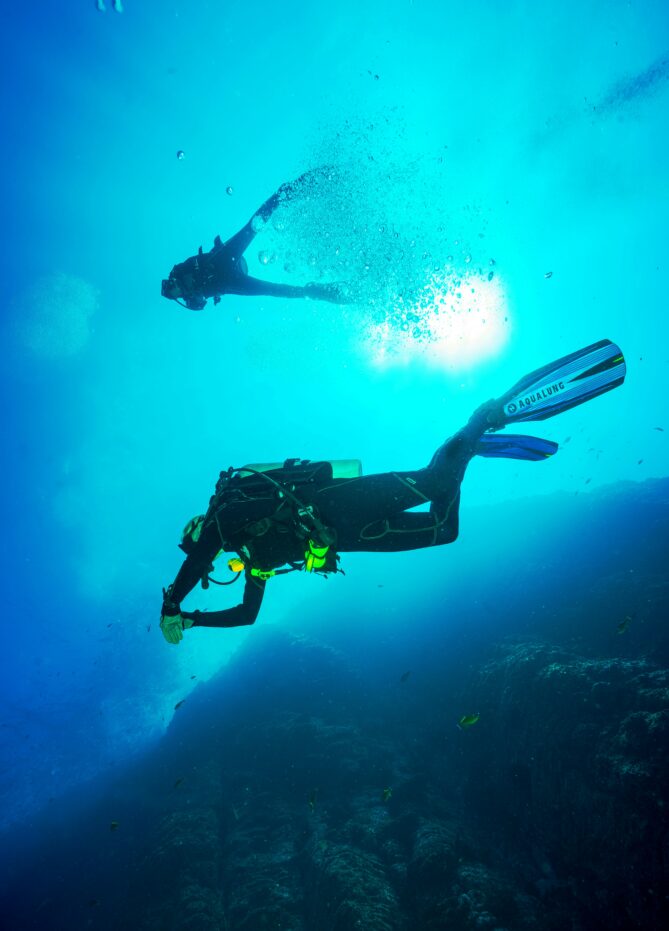
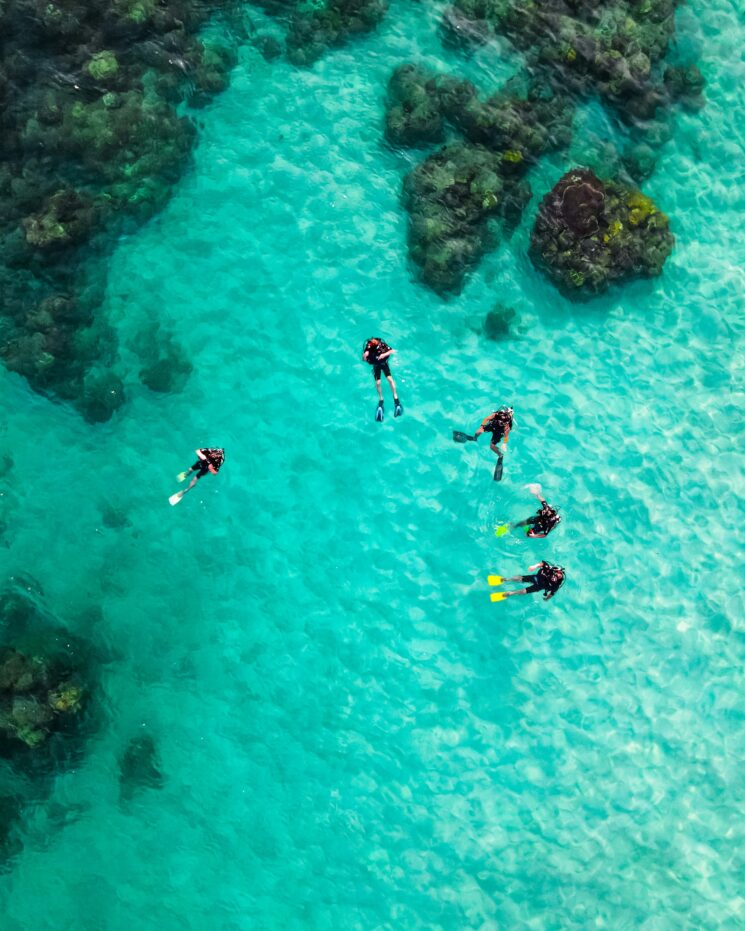
If You Can Breathe, You Can Dive!
Scuba diving is all about breathing, and being comfortable underwater. Apart from being an extremely fun activity, Scuba Diving is also about having control over your life, and experiencing freedom.
What is SCUBA Diving? SCUBA is an acronym that stands for Self-Contained Underwater Breathing Apparatus. Here, you basically carry your air assistance and all the swimming equipment with you as you explore the vast oceans.
While the whole idea and picture of first time scuba diving can seem a bit overwhelming at the beginning, trust us as people who have experienced it first hand, it is one of the most beautiful feelings you’ll ever get to sense.
We’ve compiled a guide for your first scuba dive that’ll help you prepare for your first dive and answer all the questions your mind must be questioning you with!
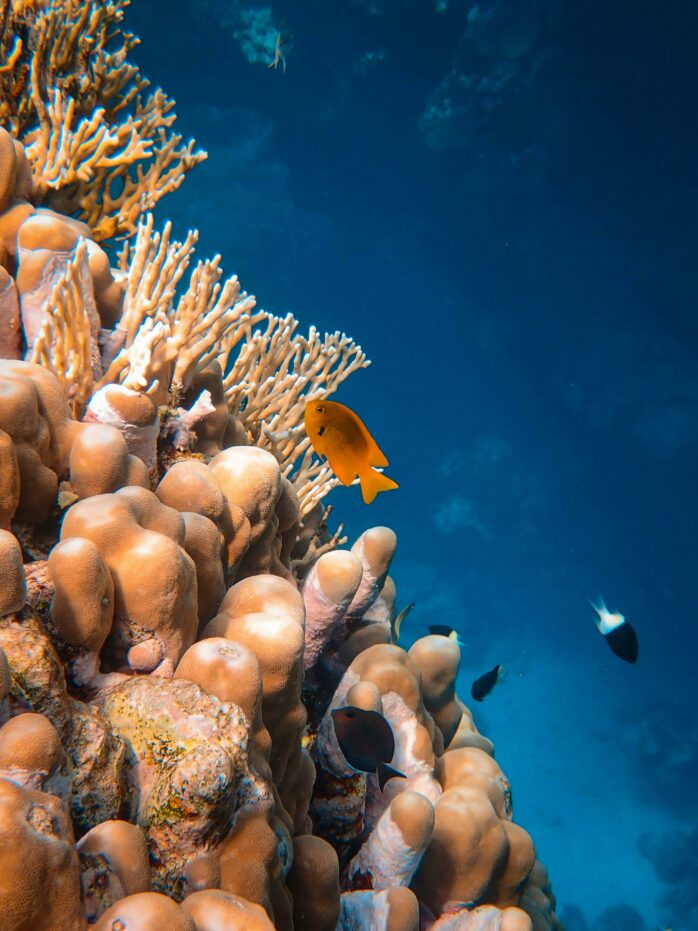
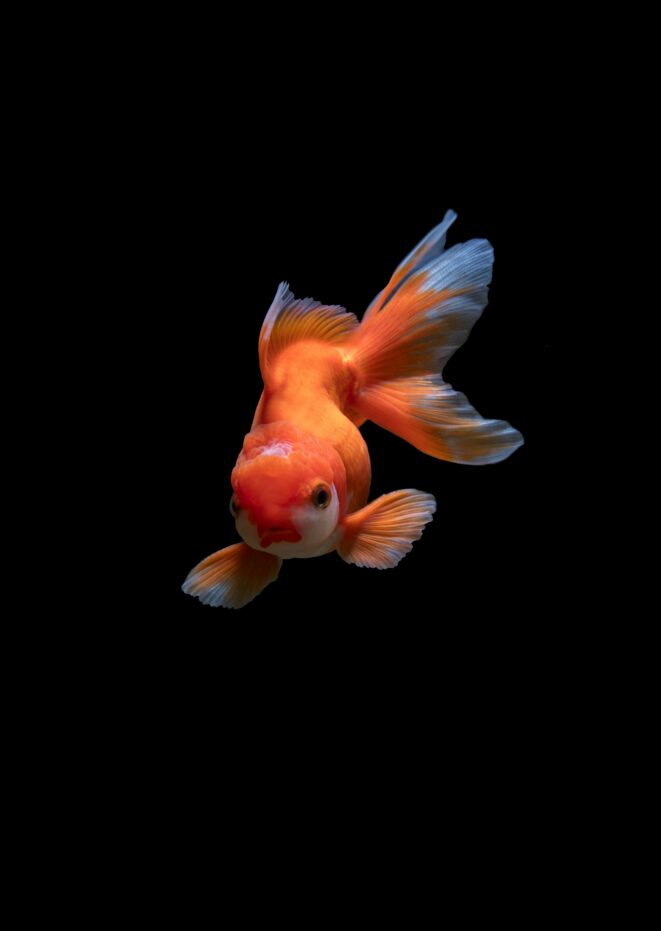
Diving Lets You Explore What Most People Haven’t
Is scuba diving really worth it? Yes, yes, a 100% yes!
Scuba diving is a total global sensation, winning the hearts of adventure lovers and nature lovers worldwide. With our planet being 70% water and only 30% land, there’s a good chance that beneath the waves, we might uncover valuable clues about life and living.
Vacations are to unwind but vacations are also the time one can pay more attention to one’s body and mind. Scuba diving engages your entire body, improving strength, flexibility, and cardiovascular health. Being submerged underwater can be incredibly calming and meditative, helping to reduce stress and promote relaxation.
Scuba Diving allows you to connect with the natural world in an immersive way, fostering a greater appreciation for aquatic ecosystems. Additionally, scuba diving is a buddy sport so it’s a great way to generate a spark or meet like-minded individuals and form new friendships.
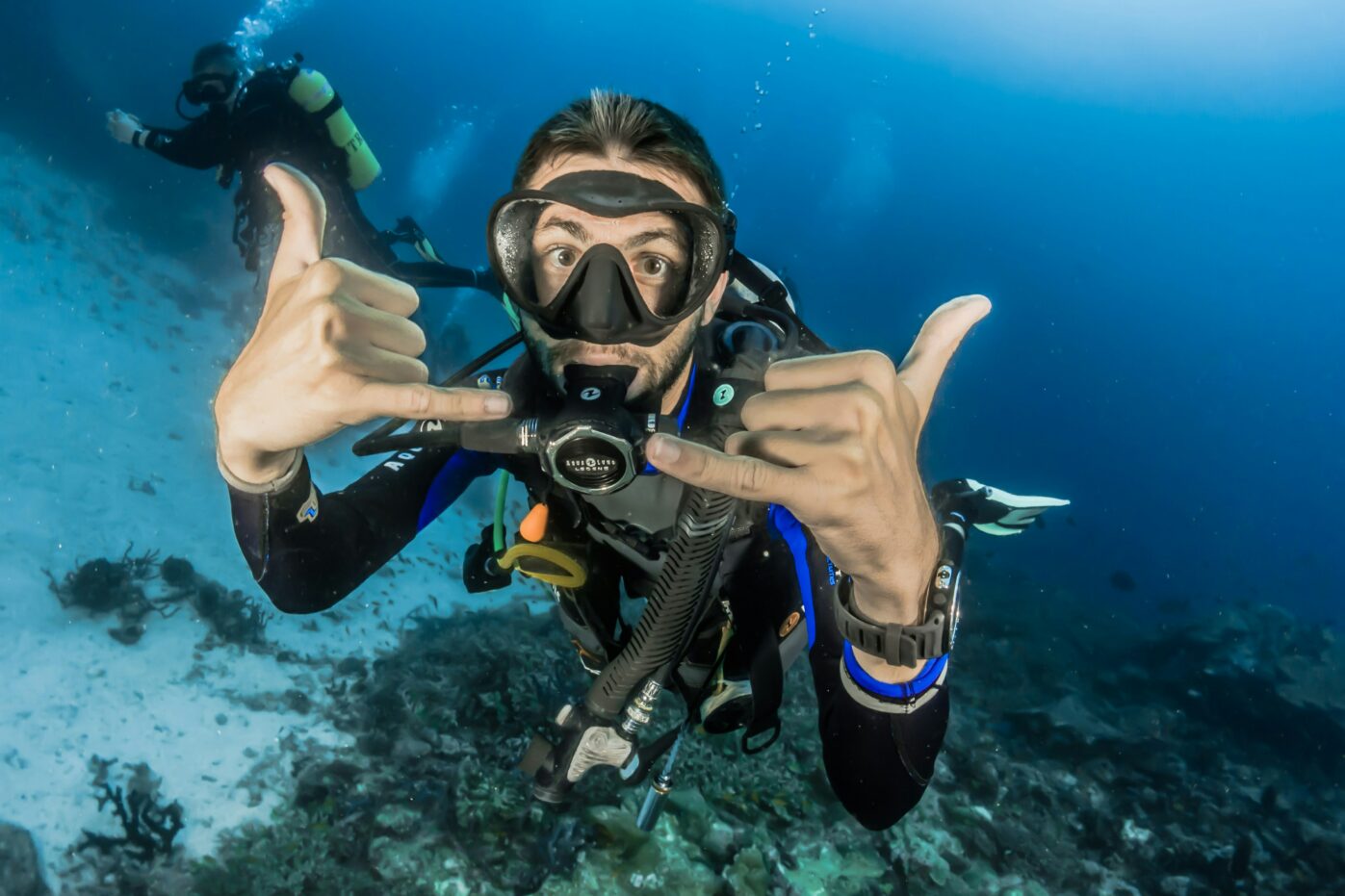
What Should I Expect in My First Scuba Dive?
Firstly, to have the time of your life! We cannot stress enough on how unique and life changing the first scuba diving experience is. PADI certified Scuba Diving Instructors are excellent at their work and just when you might have zero idea of what’s to come, they’ll ease you, make water your second home and familiarize you with diving at a pace that is comfortable with you.
Step 1: Pre Dive Briefing and Gear Familiarization
Before entering the water, your instructor will provide a thorough briefing. This includes information about the dive site, safety protocols, hand signals, and basic skills to remember underwater.
They’ll also run through a short health and fitness analysis.
Next, you’ll be introduced to the scuba diving equipment and shown how to properly use it. This typically includes a wetsuit, mask, fins, regulator, buoyancy control device (BCD), and tanks.
Step 2: Skill Practice in a Confined Space
Before the dive, you’ll practice essential skills in a controlled environment, such as breathing from your regulator, clearing your mask, and equalizing your ears. These are the basic skills required by any diver so make sure to master these skills. In case of any questions, ask for clarification.
Is scuba diving a safe sport? Safety is always prioritized in Scuba Diving. Your instructor will prioritize safety throughout the dive, ensuring everyone follows proper procedures and stays within safe depth limits.
Step 3: Dive to Your Heart’s Content
All the preps done, the wait is over and now it’s time to jump into the waters! You feel excited already, don’t you?
Depending on the dive site, you may enter the water from a shore or a boat. Both, shore dive and boat dive have their own fun points! Your instructor will guide you through the entry process and ensure everyone is comfortable before descending. As you descend, you’ll have the opportunity to explore vibrant marine life, beautiful coral reefs, or fascinating underwater landscapes.
Maintaining neutral buoyancy is crucial in scuba diving. You’ll learn to control your buoyancy to hover effortlessly and conserve energy. Hence, in addition to fun, this experience is also an intensive learning activity.
Step 4: Post Dive Debriefing
After the dive, you’ll debrief with your instructor or the divemaster, discussing your experience, any challenges encountered, and areas for improvement. This is also the time when you can ask any questions regarding marine life or further dive courses.
Scuba Diving is a fun and exciting recreational sport activity. And we would totally recommend getting more and more experience underwater, bringing you closer to 70% of the Earth!
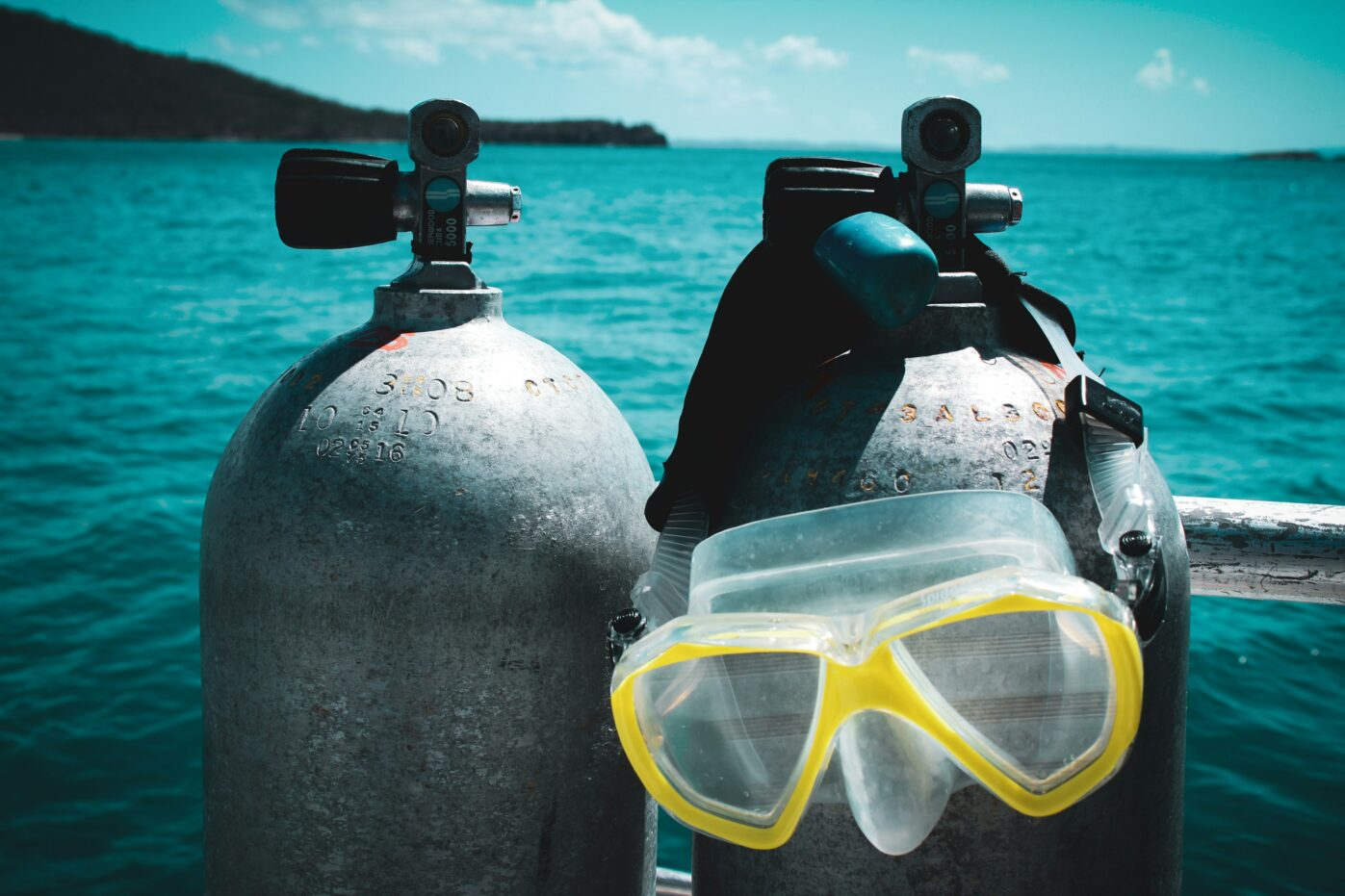
What Should I Carry to My First Scuba Dive?
Your local scuba diving center will provide you with almost everything so you need to be totally stress free. They’ll arrange the dive gear including a wetsuit, mask, snorkel, fins, dive computer, regulator, buoyancy control device (BCD), dive tank filled with air, and weights.
Some personal things to carry for your first scuba dive are a towel, a change of clothes for after the dive, some snacks, water and beverages because diving can be quite tiring, hats and sunglasses, a waterproof bag, a GoPro to click pictures underwater, some personal medication if required.
Confused about what to wear while you dive? Go minimal. A swimsuit or any tight fitting shorts and tank would be okay. You’ll be wearing a wetsuit over this but know that a wetsuit doesn’t keep your insides dry. Though there’ll be warmth, it won’t be dry.
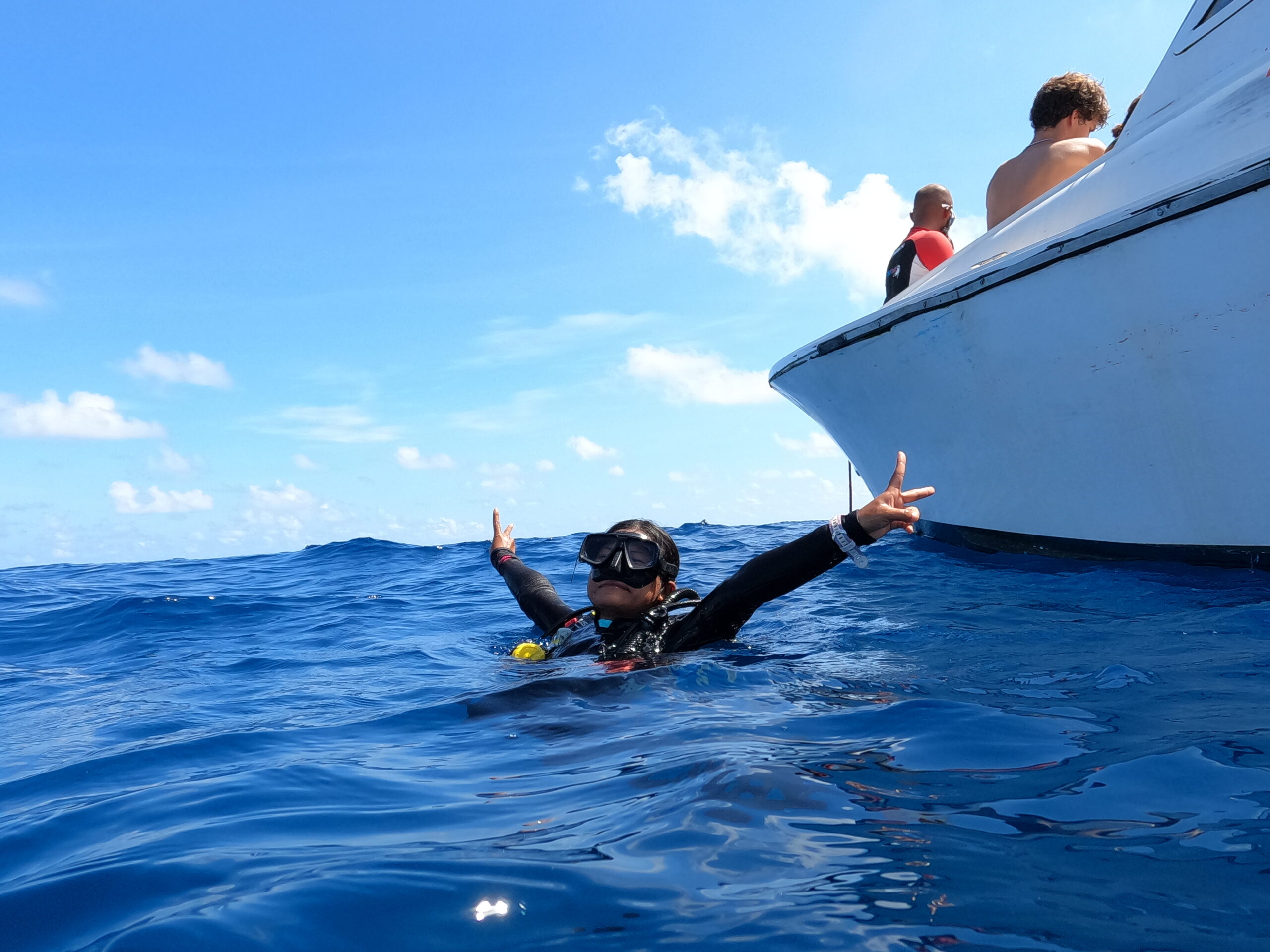
Can I Scuba Dive Without Knowing How to Swim?
Can’t swim? You can still indulge in a DSD i.e. Discover Scuba Dive, a fun dive session under the supervision of a professional diver. However, if you plan to pursue a course in scuba diving, being able to swim 200 m and floating for 10 minutes becomes a basic requirement.
The minimum age requirement to be able to scuba dive is 10 years. The maximum age is usually 45 years but don’t worry if you’re older, you can still dive after getting a doctor’s certificate.
Worried that spectacles may hold you back from diving? Definitely not. You can dive either without glasses if you don’t have high power, it’s totally safe, or you can go ahead with contact lenses in case you wear them.
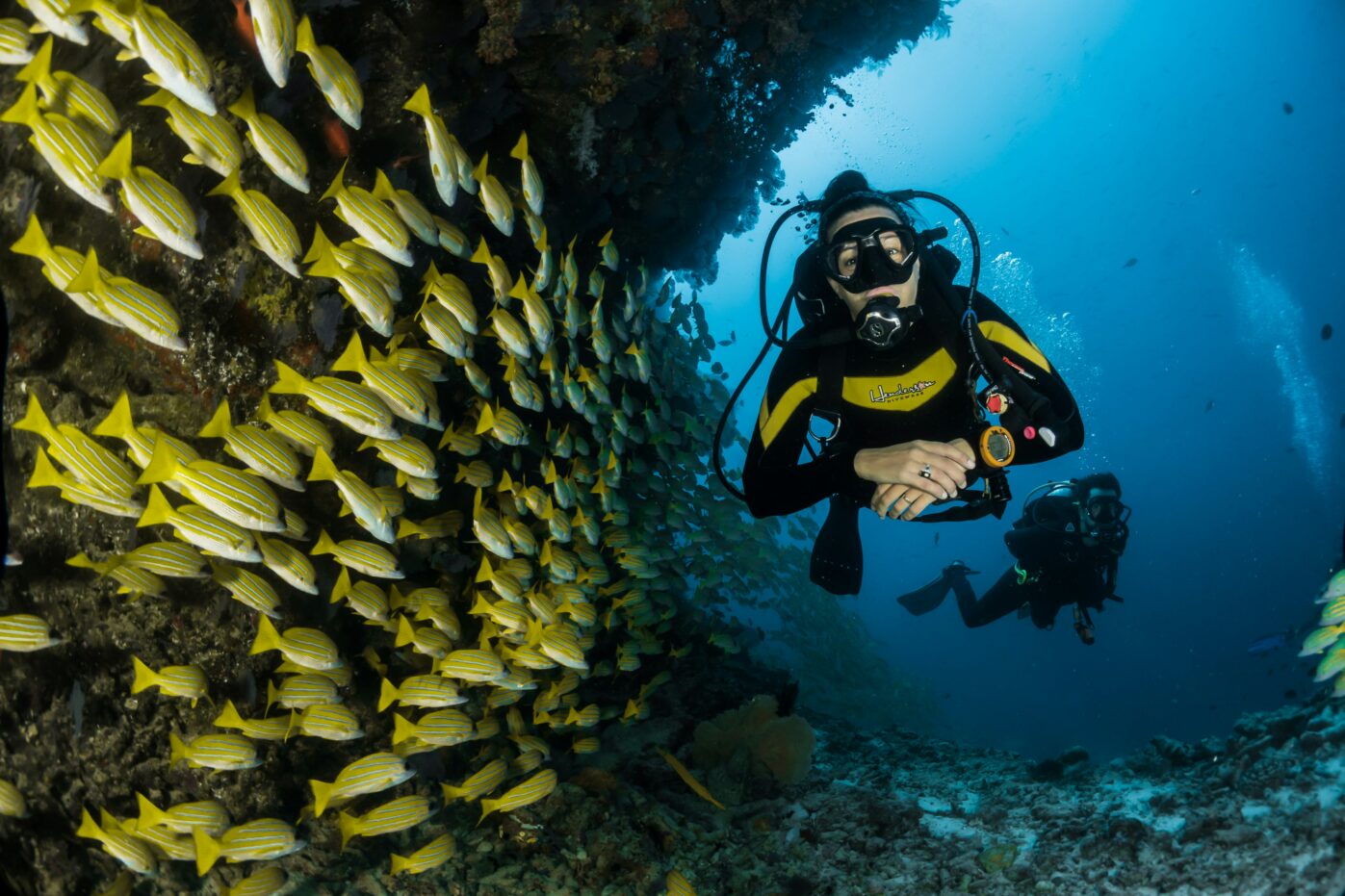
G2A Tips for your First Dive
- We recommend booking Scuba Diving in advance as the slots are limited for a day.
- Avoid using Sunscreen while diving as its chemicals lead to danger for marine life. Your tan can be reversed but their lives cannot.
- Stay hydrated while diving. It can be quite exhaustive as the sun is strong.
- Breathing steadily and slowly is the key to a good dive.
- Scuba diving is not preferred for pregnant women and people with disabilities.
- Plan your flights 24 hours post-diving. A diver should stay at sea level for a sufficient amount of time prior to taking off to enable the removal of surplus inert gas, primarily nitrogen, from tissues. An early flight can cause inert gas to escape the solution, create bubbles in the tissues, and cause decompression sickness (DCS).
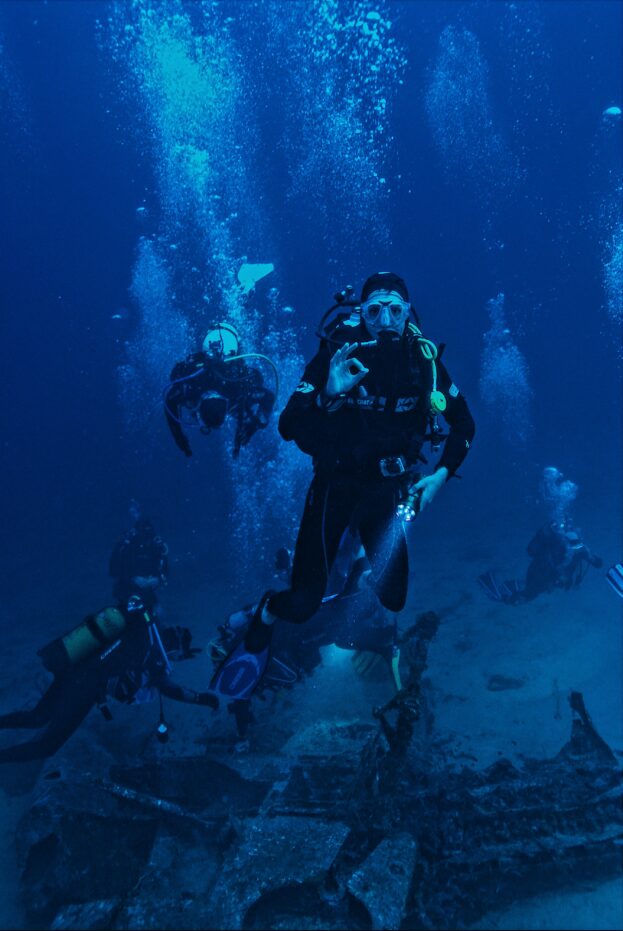
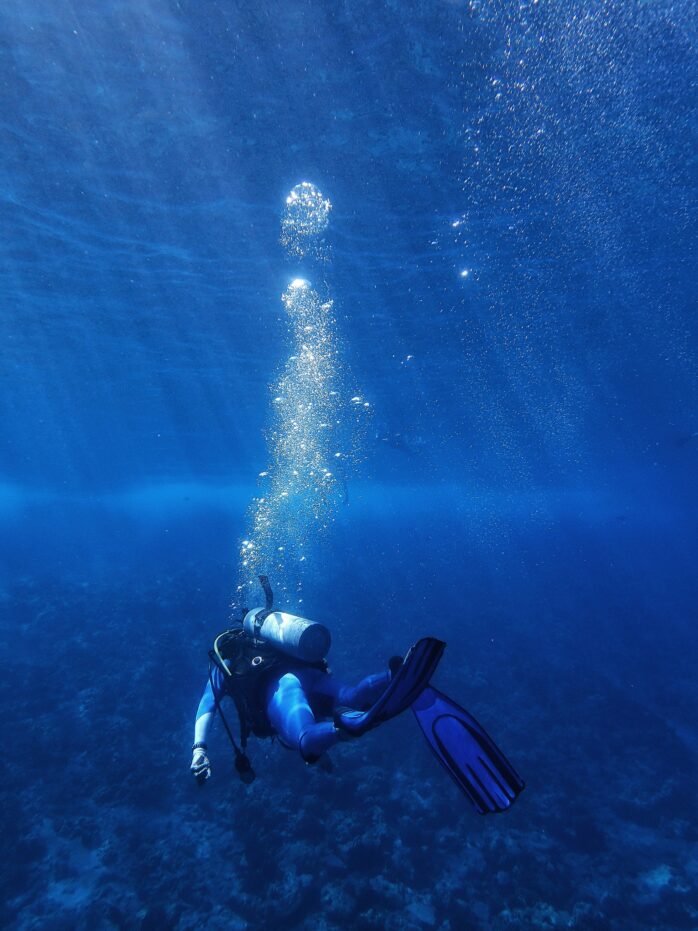
Think You’re a Water Baby? Skip DSD and Back Roll Into Open Water Diver!
Becoming a professional scuba diver involves a various journey of learning, training, and gaining experience. It typically begins with obtaining basic certification through courses offered by globally recognized scuba diving organizations like PADI, SSI, or NAUI. Courses, such as DSD, Open Water Diver, provide fundamental knowledge and skills necessary for safe diving.
As divers progress, they guide on a path of continuous education, completing advanced certifications like Advanced Open Water Diver and Rescue Diver, as well as specialty courses in areas such as underwater navigation, deep diving, and wreck diving. Alongside formal training, divers accumulate experience by doing dives in various conditions and environments, from clear tropical waters to challenging wrecks and caves.
Post this, there are Divemaster, Instructor and many many other dive courses that give your diving a professional touch and subsequently, the difficulty level also rises.
Regular diving not only builds confidence and proficiency but also promotes a deeper understanding of marine ecosystems and conservation. Staying physically fit and investing in high-quality equipment are essential components of becoming a professional diver.
Additionally, seeking guidance from experienced divers and instructors, as well as actively participating in the diving community, can accelerate skill development and knowledge. Ultimately, becoming a pro in scuba diving is a lifelong journey marked by dedication, passion, and a commitment to continuous learning and improvement.
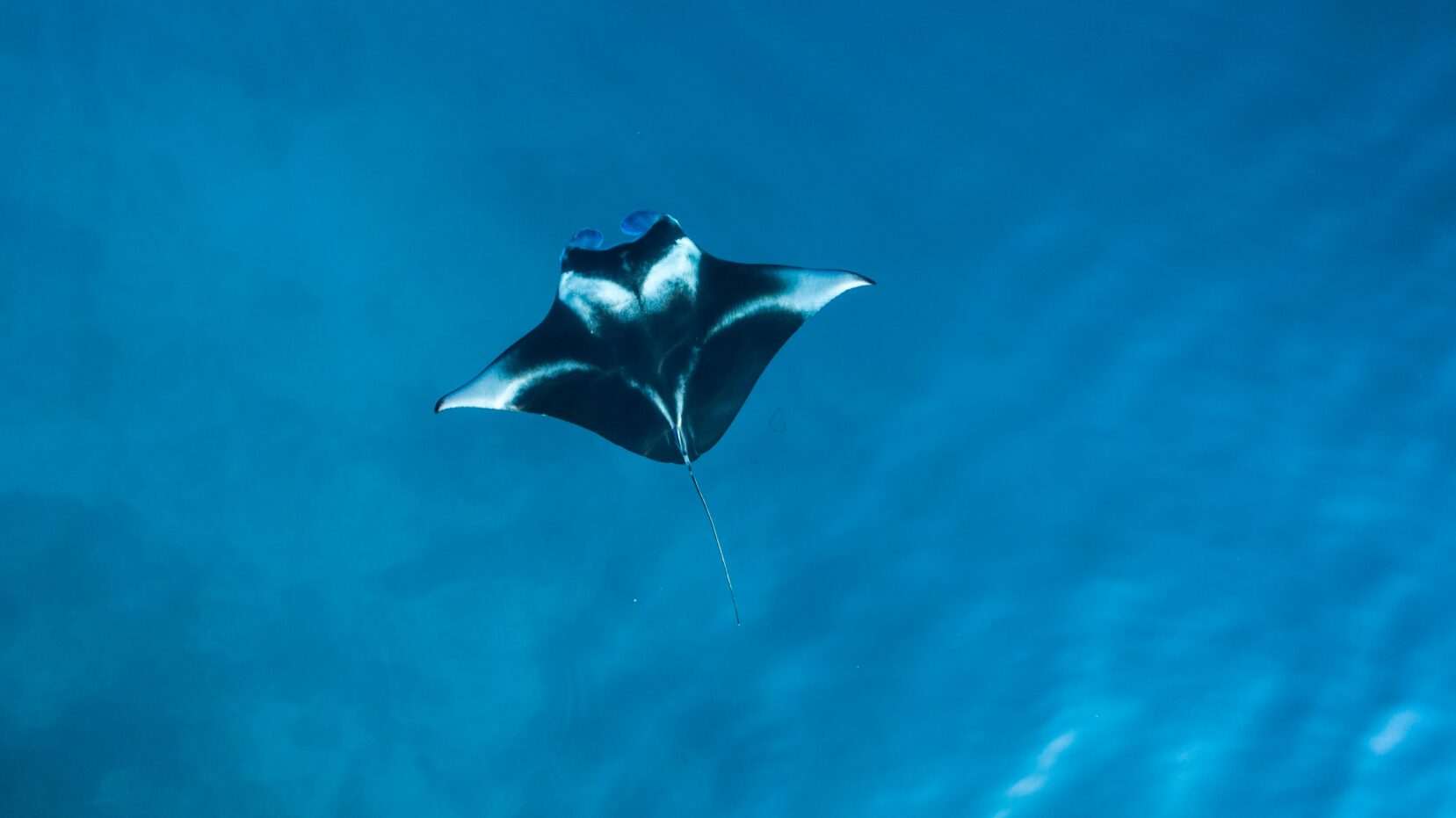
Scuba Diving in Andaman Islands
- Are Andaman Islands a Good Place for Scuba Diving? Known as the “Scuba Diving Capital of India”, Andaman has a varied marine ecosystem, vibrant coral reefs, high clarity water, and a culture of diving found nowhere else. There are dive sites that cater to all levels of diving- from beginner to a professional.
- When is the Best Time to Dive in Andaman? Best season for Scuba Diving in Andaman is enjoyable throughout the year, non-monsoon seasons, October- May provide the best water temperature and underwater visibility. Cyclonic weather or unexpected rains call for a prior check. Diving early in the morning is the most common practice because of lighter sun and milder winds.
- Who to Dive with in the Andaman Islands? While who we work with depends on the quality of the dive center and the dives they offer, safety and the feel of the whole thing, there are undoubtedly some names that have been associated with us since a while. They are trusted brands like DiveIndia, Lacadives and ScubaLov.
- What is the Cost of Scuba Diving in Andaman Island? Scuba Diving Price in Andaman starts at INR 5,000/- for the DSD Shore Dive, INR 6,799/- for the DSD Boat Dive, and subsequently ranges to around INR 28,000/- plus taxes for PADI certified courses. Scuba Diving price in Andaman varies depending on the type of dive, dive site, base location and dive partners.
- What Marine Life will you witness while diving in Andaman? Have you heard of the Coral Triangle? The Coral Triangle is a marine area located in the western Pacific Ocean. It has the highest marine biodiversity in the world! And the Andaman Nicobar islands fall inside it.
- Which is the Best Place for Scuba Diving in the Andaman Islands? You can dive around three islands in the Andamans. These are Havelock Island, Neil Island and Chidiya Tapu in Port Blair. All these locations have beautiful dive sites which contain a variety of corals and marine life. Depending on your skill level, choosing the dive sites is the best way to go forward. Scuba Diving in Havelock is best for newer divers looking to gain experience in controlled conditions or for those looking to undergo training courses. Whereas, for advanced divers, Scuba Diving in Neil Island has the slight edge in terms of dives sites and water depth.
Read More: Water Sports in Andaman
Book You first dive with Go2Andaman
Frequently Asked Questions – Scuba Diving in Andaman
-
Is scuba diving safe?
Scuba Diving is a safe water activity that is done by thousands of people across the world, daily. It is recommended that you have a decent level of fitness like being able to walk for 45 mins without getting tired. All Instructors and dive masters are equipped with internationally recognized certifications and are trained in dive supervision, diver rescue and Emergency First Response (EFR).
-
Who cannot do Scuba Diving?
People with disabilities, pregnant women, people with back issues and respiratory illnesses are strictly not allowed to Scuba Dive.
-
Do I need to know how to swim?
You can do scuba diving even if you do not know how to swim. You will always be accompanied by an experienced instructor or dive master. They’re there to help you stay comfortable underwater and will assist you at all times.
-
What to wear?
Wear your swim-wear or you can even wear a quick-dry shirt and shorts. A wetsuit will be provided at the dive shop that will be worn over this. Wear flip-flops when you go to the dive shop. It is advisable not to wear sports shoes, heels or boots.
-
What to carry?
Lorem Ipsum is simply dummy text of the printing and typesetting industry. Lorem Ipsum has been the industry’s standard dummy text ever since the 1500s, when an unknown printer took a galley of type and scrambled it to make a type specimen book.
Customer Happiness
Secure Payments
No Hidden Costs
Fast Confirmations
Stay updated with all the excitement that Andamans has to offer

If you have a flair for writing, write for us and get featured.
Get lost or never. You decide. Download our handy tour guides to plan your trip.